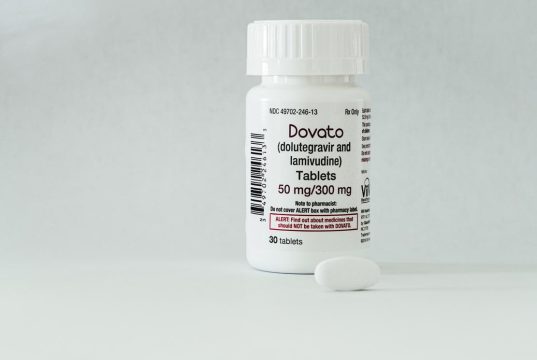Advertisment
FDA Highlights: Topiramate lowers alcohol consumption in those who want to reduce drinking

by Bruce Sylvester: Topiramate, an FDA-approved anticonvulsant drug which had been shown to reduce drinking in patients committed to complete abstinence, appears to help problem drinkers whose want to reduce alcohol consumption, especially a specific group with a genetic makeup linked to the efficacy of the therapy.
Their findings were published on Feb. 14, 2014 in the American Journal of Psychiatry. The study was initiated at the University of Connecticut Health Center and completed at the Center for Studies of Addiction at the University of Pennsylvania.
“This study represents an important next step in understanding and treating problem drinking,” said lead author Henry R. Kranzler, MD, professor of psychiatry at the University of Pennsylvania School of Medicine in Philadelphia and director of its Center for Studies of Addiction. “Our study is the first we are aware of in which topiramate was evaluated as a treatment option for patients who want to limit their drinking to safe levels, rather than stop drinking altogether.”
The investigators enrolled 138 heavy drinkers, treating half of the subjects with 12 weeks of treatment of topiramate at a maximal dosage of 200 mg/day, and half with a placebo. All enrollees received counseling to help reduce drinking and increase abstinent days.
It was a three phase study, with a one-week pre-treatment assessment period, a 12-week treatment period and a nine-day medication tapering period.
All subjects were evaluated weekly during the first six weeks of treatment, followed by three biweekly visits. Clinicians measured breath alcohol concentration, weight and vital signs. They also monitored concurrent medication-use, adverse events and protocol adherence.
The investigators reported that, by the end of treatment, the odds of a “heavy drinking day” happening was five times greater among the placebo subjects than among the topiramate subjects. The number of subjects who reported having no heavy drinking days during the final four weeks of topiramate treatment was more than double that in the placebo group. Also, topiramate subjects reported more abstinent days than placebo patients.
Notably, only individuals with a specific genotype found in 40 percent of European-Americans benefitted from treatment with topiramate. The genotype involves two copies of a variant in the gene encoding a subunit of the receptor for an excitatory amino acid neurotransmitter, kainite. Kainate receptors, or KARs, are ionotropic receptors that respond to the neurotransmitter glutamate.
The authors noted that since topiramate interacts with multiple neurotransmitter and enzyme systems, this finding provides a specific target for the development of treatments to reduce heavy drinking.
Dr. Kranzler is optimistic about the potential for the personalized treatment of heavy drinking. “Our hope is that the study will result in additional research on how best to help patients who have struggled with heavy drinking and the problems it causes, but who are unable or unwilling to abstain from alcohol altogether. These findings may allow us to predict, in advance, who may benefit from topiramate treatment, thereby avoiding the unnecessary use of the medication.”





